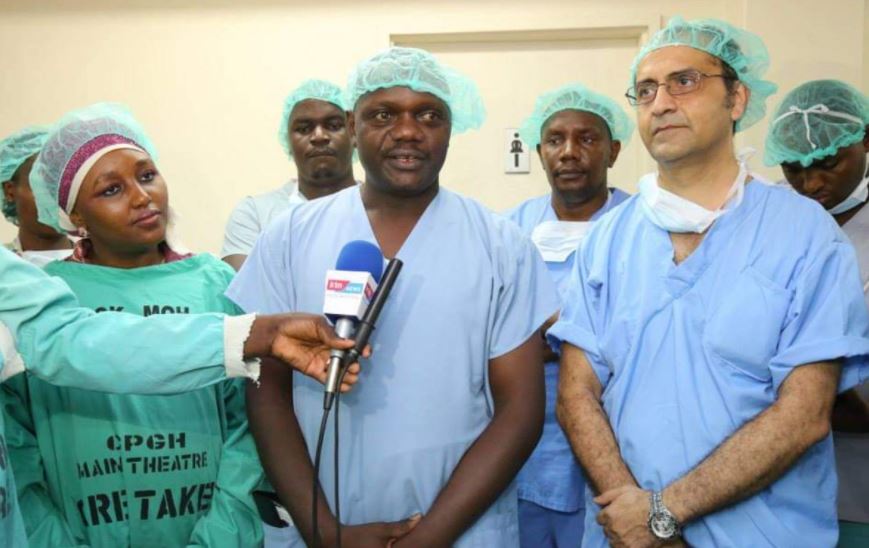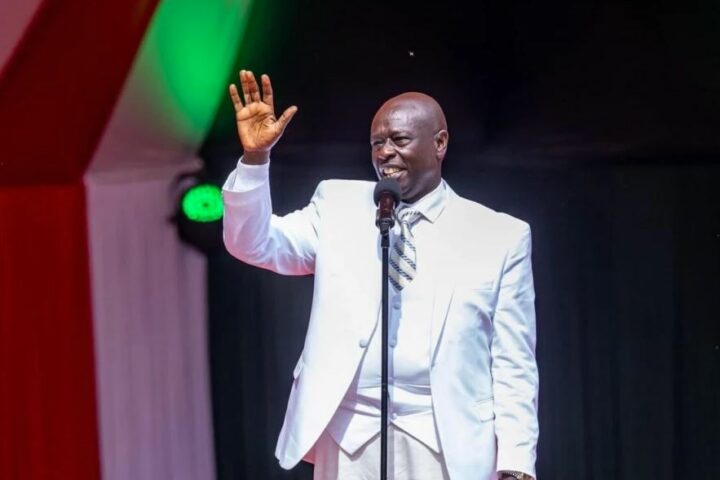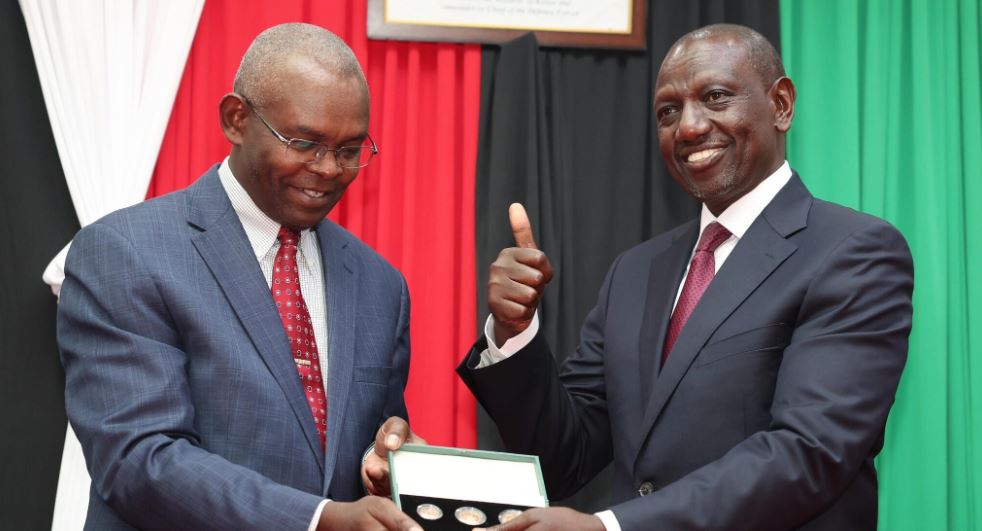 Dr Peter Sore, a Cardiac and Thoracic Surgeon, head of Heart Clinic at the Coast General Teaching and Referral Hospital (CGTRH) spoke to Nation.africa about his experience on the frontline of healthcare services.
Dr Peter Sore, a Cardiac and Thoracic Surgeon, head of Heart Clinic at the Coast General Teaching and Referral Hospital (CGTRH) spoke to Nation.africa about his experience on the frontline of healthcare services.
I recently operated on three Covid-19 patients, but I never revealed it to my family. It would have scared them.
They were coronavirus patients with surgical problems. Your patient can have Covid-19 but also have surgical emergency problems so you cannot refuse to operate on them. Initially, as surgeons, we used to fear but we have overcome the panic.
In my more than 30 years of practice as a medic, I have never been as terrified as during the pandemic. I was distraught when some of my patients succumbed to Covid-19. One time, my patient needed endoscopy, but he died because we could not do the crucial surgery to save his life due to the recent medical workers’ strike in Mombasa.
There are patients with issues that can be addressed but they fear coming to the hospitals, fearing they may contract the disease. Sadly, their diseases progress and they died at home.
I have had some patients, especially those suffering from cancer of the oesophagus and I needed to do surgery, but I could not because of the Covid-19 situation. The health workers’ strike compounded the challenges.
We need statistics to know how the pandemic has affected Kenyans. This disease has really disrupted healthcare services, to a point that patients cannot get surgery.
I wish Kenyans knew how the pandemic has affected medical services. For instance, on March 22, everything was set for resumption of open-heart surgery at Coast General Teaching and Referral Hospital (CGTRH), the largest health facility in the region. But our specialist colleagues from Kenyatta National Hospital who were planning to travel to Mombasa could not after President Uhuru Kenyatta announced the containment measures locking down the five counties including Nairobi.
We are now at a crossroads, with our patients awaiting the surgery, which is crucial for their survival. It is a difficult situation. The same is happening in Nairobi. Heart surgeries cannot be performed because ICUs are now reserved for Covid-19 patients.
We usually have training programmes for surgery where we get specialists from all over the world coming to Mombasa but due to the containment measures, we had to shelve it.
The lockdown has affected our training. You know you cannot always do zoom surgery trainings; it must be practical. We must monitor students doing the surgeries; the trainings are no longer vibrant.
The pandemic has slowed down our work and made it somewhat cumbersome. Now, before doing any surgery you have to do a Covid-19 test.
Sometimes you plan for surgery but when you do a CT scan you find the patient is suspected to have the virus so you cannot operate and have to wait. The practice has changed so much that before things like endoscopy, we insist on a Covid-19 test.
Before the pandemic, I could see 25 patients in my clinic at CGTRH but nowadays I attend to 10 or less. For surgery, we have about six main operational theatres where we could perform 20 procedures per day but now it’s 10 or five.
It is a tricky situation. Some of the staff who were manning the ICUs for surgical patients were redeployed to Covid-19. So we have to work with less staff for surgeries. It is a complicated situation. The most affected areas are surgery and obstetrics/gynaecology.
I have not contracted the disease, but my staff got it, some were admitted and recovered. But I am glad we now have the vaccine. I have been vaccinated; I wish the rest could follow suit.
I wish Kenyans could follow the guidelines issued by the Ministry of Health. For medics, I pray that we watch over each other. You can be in a theatre or ward and forget to use gloves or properly wear your face mask; kindly be your brother’s keeper.






